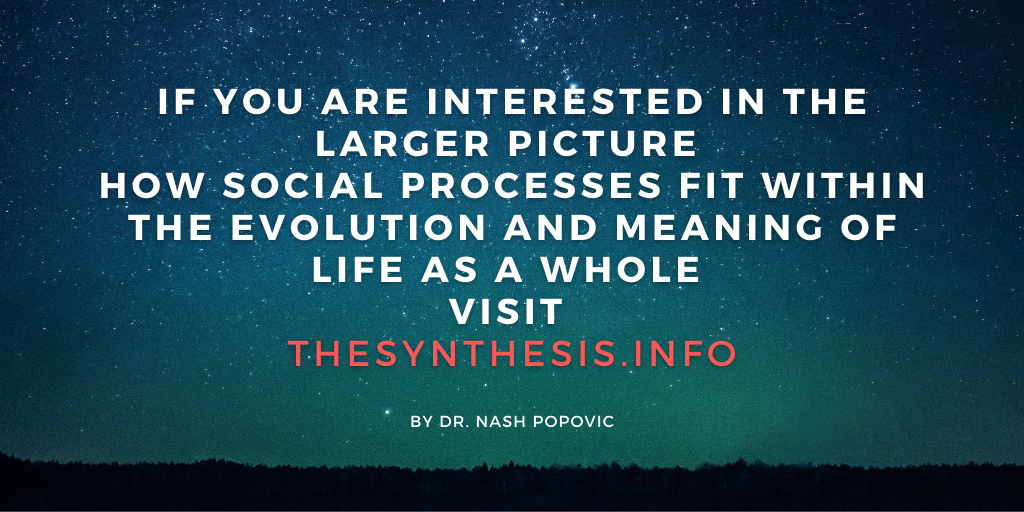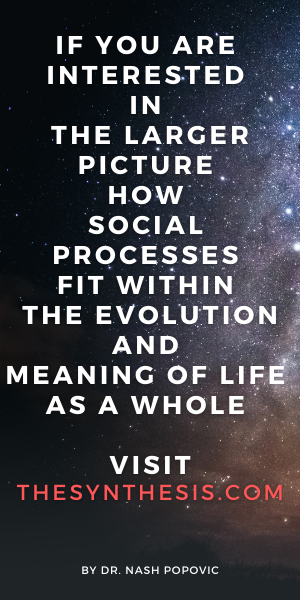Direct democracy refers to the involvement of all eligible citizens in political processes. Some elements of direct democracy are already applied throughout the world. We will focus here on those that have proven their effectiveness on a large scale (i.e. a nation state).
Why direct democracy is needed
Direct democracy is most conducive to the political maturity of the general public, as it requires political awareness and involvement. Political maturity, in turn, is not only important for social cohesion and development, but is also the best guard against subversion of governance (which thrives on political ignorance and disengagement). Without political maturity, indirect democracy can be reduced to manipulating the masses for the benefit of those who hold power over politicians. Meritocracy, too, could turn into a form of totalitarianism. In a nutshell, direct democracy is necessary to enable ordinary citizens to contribute to shaping the political process and to keep in check the other two components of this model.
How is direct democracy enabled?
Participation in direct democracy is obviously based on self-selection (although there may be some age and residency restrictions, as is commonplace at present). Space and time, however, can be a challenge for participation, especially on a large scale. The internet and electronic voting systems can greatly help in mitigating the issue of space – making voting in a referendum, for example, easier. However, the issue of time still remains. We cannot assume that a sufficient number of people would be able to afford or willing to spend the necessary time to become informed and participate, when so many other things compete for their time. After all, there is asymmetry here; the representatives and council members would be paid, while those participating in direct democracy would not. This is why we propose that a half day off work is granted to everybody who participates in referendums and elections in order to give them time to prepare and make an informed choice. As elections and referendums are mentioned in this chapter many times, an impression may be left that such occurrences will be very frequent, and all this time off could put strain on business and industry. However, many situations that would trigger a referendum or election are contingencies (such as a gridlock between the council and the legislature) that should not happen often. We anticipate that no more than one or two such half-days off a year would be required – the equivalent of a single public holiday. The other potential issue with this is that many people, left to their own devices, would simply take that half-day as a break, and any forms of policing would be likely to cause resentment. This is why, to ensure citizens’ informed participation, we suggest that they should still go to their work place and spend the half a day of preparation there. This may include individual research, discussions with their colleagues, or group meetings and presentations.
If you are also interested in personal development that can help you make some evolutionary changes in your own life please visit personalsynthesis.com
The role of direct democracy
The role of direct democracy would be twofold: to involve people in decision making and to keep in check the other two components as well as be a dealbreaker if there is a disagreement between them. There are multiple ways of exercising this role:
Proposals: the general public should have the opportunity to propose new ideas to the council and to the legislature, via two avenues:
- They could collect a sufficient number of signatures from people who agree their proposal is sound (e.g. 1% of voters). Once more we find something similar already in practice in Switzerland: the federal constitutional initiativeallows citizens to put a constitutional amendment to a national vote, if 100,000 voters sign the proposed amendment within 18 months. Parliament can supplement the proposed amendment with a counter-proposal, and then voters must indicate a preference in a ballot. This model seems to work well in practice although, of course, other countries would have to adapt it to their size and specific circumstances.
- Citizens could submit a proposal to a non-partisan selection committee, which would decide if the proposal was sufficiently sound to go forward (to eliminate trivial proposals). Either the legislature or the council, depending on the type of proposal, would then be presented with a relatively small number of proposals that they would need to consider within a pre-set period. They could either accept them, amend them or reject them – and provide a rationale for their decision. Decisions made by one body would be passed to the other for confirmation. If the council and the legislature disagree and are unable to reconcile the differences, a popular vote on the proposal would be triggered, which would be final and binding.
Interest groups: Direct democracy could also be exercised via interest groups across society (such as students, farmers, environmentalists, health professionals, etc.). These groups could liaise with relevant governmental departments and seek representation in relevant committees, or mobilise people by raising awareness of certain issues through the mainstream and social media. They would also be important to balance localism. Localism is gaining popularity nowadays as a reaction to globalisation. It offers some advantages, such as greater participation, familiarity with political representatives, and (usually) greater cohesion of interests and concerns. However, geographical localism has disadvantages too. A local community can easily become enclosed, creating an ‘ingroup–outgroup’ mentality, and competitive (turning against other localities), which can lead to social segmentation. Cross-sectional groups can counter that. When people’s identity is defined in more than one way, it is less likely to be reduced to and solidified within their locality. Switzerland again provides an example. This country consists of a number of cantons, some of which have different languages and religions as well as distinct cultural identities. Yet, they have been living more or less in harmony for centuries – a far cry from the nationalistic chaos that happened in another federal state, the former Yugoslavia. One important factor that has contributed to Switzerland’s success in this respect is an across-the-board connectivity via various interest groups (such as farmers). Forging connections that span the whole country can contribute to national cohesion, even in a fairly decentralised system.
If you are also interested in the larger picture – how these social processes fit within the evolution and meaning of life as a whole, please visit thesynthesis.info
Citizens’ Assemblies (randomly selected from a cross-section of the public to study and deliberate on an issue of national importance): the members of the assembly would meet for several days, hear testimony from experts, ask questions and deliberate in small groups before rendering their policy decision. Such assemblies have already been used in Canada, the Netherlands, Poland, Ireland and elsewhere.
Referendums are one of the major tools of direct democracy, although there is an increasing weariness of them after some high-profile debacles such as the Brexit. Indeed, if used in a too simplistic way, referendum can be divisive to say the least. To avoid this, particularly if the result of a referendum was close, we suggest using the aforementioned fuzzy logic. In the case of Brexit, for example, when 48% of those who voted chose to remain in the EU, and 52% opted to leave, it would mean an obligation to go for a so-called ‘soft Brexit’ (leaving the EU, but retaining close ties with it as much as possible). Such an option would likely be more acceptable to the larger number of people than the ‘winner takes it all’, making the result less divisive. Even better, a referendum should have, if possible, more than two options (to use again the same example, ‘No deal Brexit’, ‘Hard Brexit’, ‘Soft Brexit’, and Remain). This would require the STV system (people voting in order of preference). STV would secure that one block (in this case the Leave vote is not disadvantaged by being split among three options). Under this system the winning option would be what the vast majority of people chose as either their first or second choice.
Petitions and public demonstrations, as described earlier, can be used to provide feedback and keep in check the other two components.
How is direct democracy kept in check?
As with the other two components, direct democracy may also need some checks and balances, for two main reasons:
- There is a natural tendency to care more about those who are at close proximity than those further away (compare how you would feel if you heard that ten people had died in a collapsed building in your area with the same happening on the other side of the globe). Particularly decisions at local level, in which direct democracy can have a more prominent role (see below), may not sufficiently consider wider society. Yet, these decisions may affect those further away, especially in today’s highly interconnected world. For example, if a decision taken by a community that lives around the upper part of a river doesn’t take into account the needs of other communities further down the river, the decision may need to be moderated, no matter how democratically it was arrived at. The relevant governmental services should make sure that such decisions are in line with the national regulations.
- The second reason is the so-called ‘tyranny of the majority’. Direct democracy is not immune from disadvantaging or suppressing a minority (be it based on class, religion, ethnicity, sexuality, education, age, culture, or ideology). The role of the council would be to enable a balance and protect the rights and interest of minority groups, by making sure that direct democracy decisions are fair to everybody and non-discriminatory. It would also check that they comply with agreed general principles embedded in constitutional laws (e.g. equality and human rights laws).


